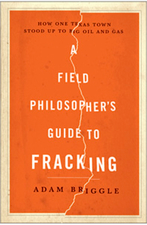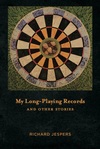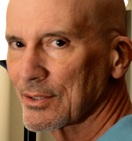A WRITER'S WIT |
My Book World

I became aware of Briggle’s book by way of C-SPAN’s Book-TV. Having long been concerned about fracking, I was impressed with his oral presentation and ordered the book immediately. To his credit, he explores both sides of the issue—the full spectrum of choices citizens have concerning the issue of fracking.
Philosopher Briggle opens with an epigraph from Goethe’s Faust, which I cannot possibly translate, so I offer up what two different auto-translate sources seem to do with it.
Daß ich erkenne was die Welt
Im Innersten zusammenhält
That I know what the world (Google Translator)
At the core holds together
The fact that I recognize what the world
In the most inner holds together (Reverso)
His narrative is part memoir, part science, part philosophy, and part sociopolitical. He sets it motion by relating how he first comes to know what fracking is. Pushing his son’s swing at Denton’s McKenna Park in 2009, he chats with a young mother, who matter-of-factly informs him that the area next to the park, open ranch land, is soon to have three new gas wells.
In some ways how else can a philosopher examine this situation except through the lens of his specialty? Such a lens offers a logical and sensible view, not often held by proponents of fracking.
“Fracking exemplifies the technological wager, by which I mean a gamble or even a faith that we can transform the world in the pursuit of narrowly defined goals and successfully manage the broader unintended consequences that result. In many ways, we are gambling on present innovations. I think that if we are to live with high technology we cannot avoid this wager. The question is whether we can establish conditions to make it a fair and reasonable bet. In the case of fracking, I will argue, these conditions are largely not in place” (3).
But Briggle’s book is also, as I said, part science. He walks us through the ugly steps of the fracking process. First, pieces of heavy equipment deface the land. Then millions of gallons of fresh water are mixed with toxic chemicals, forced back into the earth to shake loose the shale, and then disposed of once again by pumping it deeper into the earth once the process is complete—for now the water cannot be filtered and purified for reuse, because it has been so utterly polluted. Next, at certain times these toxic chemicals leak into the air, and if you live downwind, they can complicate, in the least, chronic breathing problems such as asthma, and at worst, after multiple exposures, cause more dire conditions. He provides proof of how the groundwater in Denton and the surrounding counties is being depleted, often with little or no remuneration to anyone. To the big companies the water is “free,” part of their ownership of the mineral rights to what lies below the soil which a family may have owned for generations. And I have mentioned neither the number of “earthquakes” that plague Oklahoma and North Texas nor the noise that pollutes 24/7, once the well is being constructed—neither one of which is a minor consideration for urban life.
The sociopolitical aspect of this book may provide its most prominent strand, as Adam Briggle relates the struggle of Denton’s Drilling Awareness Group (DAG)—an amalgam of Democrats, Republicans, and Libertarians—who battle Godzilla to keep their city fracking free. The years-long crusade results in a referendum which appears on the ballot in November 2014. Briggle and his associates debate the issues with the Big Boys in every possible venue. Thugs make threatening phone calls. DAG members are sneered at or spat upon by local gentry, who believe a ban on fracking, among other things, will cause Denton’s merchants to lose millions of dollars in revenue.
Close to the end of the ballot count, the numbers are 9,000 in favor of the ban on fracking and 6,000 against. When pro-bans are sure they’ve won the victory, there is much rejoicing on the part of those who have for many years sacrificed time, energy, and sleep. However, Briggle and his wife must spend the night in a hotel room, having been informed that their house might not be safe if voters approve the ban.
In the acknowledgements, Briggle writes that immediately following the election, several oil and gas companies file lawsuits against the city of Denton. And Governor-elect Greg Abbott and his cronies have vile words for them, as well.
“I don’t know how things will turn out, but I do know that I have been educated and inspired by my journey as a field philosopher in Denton” (284), Briggle concludes, er, rather philosophically.
On election day, Briggle monitors one of the polling stations for twelve hours to make sure there are no shenanigans by the opposition, and he speaks with a young man who fracks wells in West Texas. He wants to know why DAG wants a ban in the first place. When Briggle explains that the companies plan to frack within the city limits, the young man says, “‘They’re fracking in the city? That’s crazy’” (277).
From his mouth to . . . Godzilla’s ears. Adam Briggle’s book is a candid yet uplifting read! Get it. Read it. Give it to your friends. Keep it near as a handbook for your community. Seriously.

Introduction to My Long-Playing Records
"My Long-Playing Records" — The Story
"A Certain Kind of Mischief"
"Ghost Riders"
"The Best Mud"
"Handy to Some"
"Blight"
"A Gambler's Debt"
"Tales of the Millerettes"
"Men at Sea"
"Basketball Is Not a Drug"
"Engineer"
"Snarked"
"Killing Lorenzo"
"The Age I Am Now"
"Bathed in Pink"
Listen to My Long-Playing Records Podcasts:
"A Certain Kind of Mischief"
"The Best Mud"
"Handy to Some"
"Tales of the Millerettes"
"Men at Sea"
"My Long-Playing Records"
"Basketball Is Not a Drug"
"Snarked"
"Killing Lorenzo"
"Bathed in Pink"
Also available on iTunes.


 RSS Feed
RSS Feed